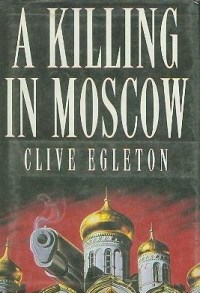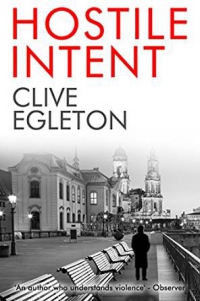Home Run by Gerald Seymour
 Tuesday, December 21, 2010 at 6:15PM
Tuesday, December 21, 2010 at 6:15PM 
Published by The Harvill Press on May 30, 1989; published in the US in 1991 under the title The Running Target
Writers of espionage novels are inevitably compared to John Le Carré, particularly if the writer is British. Gerald Seymour's writing style isn't as polished, and the characters in Home Run lack the multi-layered depth of Le Carré's best characters, but the plot and pace of Home Run are worthy of the master.
Home Run begins with the 1982 execution of a teenage girl in Iran. The rest of the novel takes place several years later. Point of view shifts frequently as two storylines unfold. One concerns a drug investigation that follows the death of a 19 year old heroin addict who overdosed. Her father, an important public official, pressures the police to make the heroin importer's arrest their top priority. The cops diligently pursue the task, grumbling all the way. The other story focuses on Matthew ("Mattie") Furniss, Head of the Iran desk at the SIS, who is being pressured by the new Director General to increase the quality of intelligence coming out of Iran. Fortunately, Furniss has cultivated a new Iranian spy, a family friend who happens to be the brother of the girl who was executed.
Home Run gets off to a conventional start, particularly with the drug investigation, where Seymour employs off-the-shelf drug cops who give the usual tiresome speeches about the evils of illicit substances. The main cop character is filled with anger and moral outrage -- traits that turn out to be necessary to the plot -- but he has the standard fictional cop's "driven by duty" personality. Seymour provided him with the familiar neglected wife who is no longer tolerant of his "job first" priorities and is making her displeasure known.
Mattie Furniss is a stronger and more interesting character; thankfully his story is at the heart of the novel. At the Director General's insistence, Furniss travels to Turkey to give a pep talk to his agents. Things do not go well for him. Back at home, bureaucrats and politicians are busily abusing their power or wielding it unwisely. There's a fascinating turf war between the self-righteous drug agents, who view the "faceless wonders" of the SIS as impeding their all-important drug investigation, and the smug SIS officers who view the drug agents as "glorified traffic wardens."
Both storylines are filled with action and tension. The pace picks up considerably by the novel's midpoint, moving with furious speed as the characters encounter realistic threats in dangerous places. Torture scenes are vivid without going too far.
Seymour uses too many comma splices, leading to awkward sentences, but that's a minor gripe. For the most part, the writing is adequate to its purpose, even if the prose doesn't soar. Stylistic lapses quickly become secondary to storylines that captivate the reader's attention.
I would enthusiastically recommend Home Run to most fans of espionage fiction, but it isn't for everyone. If you like novels in which the good guys are pure and the bad guys personify evil, this is not the book for you. There are plenty of evil bad guys, but the three main characters -- Furniss, his Iranian spy, and the drug cop -- each make questionable moral decisions. Seymour's construction of the characters and plot makes it easy to understand why they act as they do. Seymour doesn't judge them; the reader is left to decide whether each character's actions were right or wrong under the circumstances. The answers aren't necessarily clear -- I liked that, but some readers won't appreciate the moral ambiguity. As the novel's end approached, I was drawn into each character's world, fascinated by the choices they made, understanding and sympathizing with them even when I disagreed with their decisions. For all these reasons, I regard Home Run as one of the most entertaining and thought-provoking spy novels I've encountered.
HIGHLY RECOMMENDED
 TChris |
TChris |  Post a Comment |
Post a Comment |  Gerald Seymour,
Gerald Seymour,  HR,
HR,  spy in
spy in  Thriller
Thriller 


